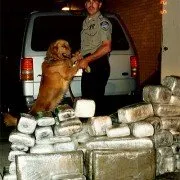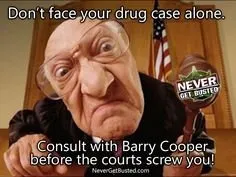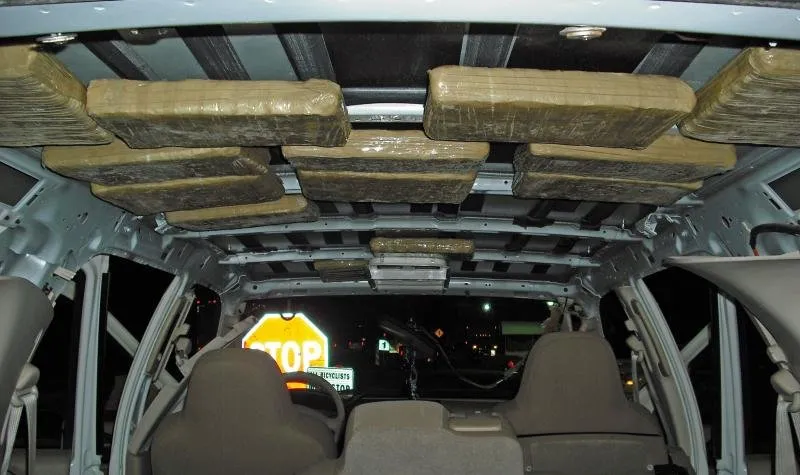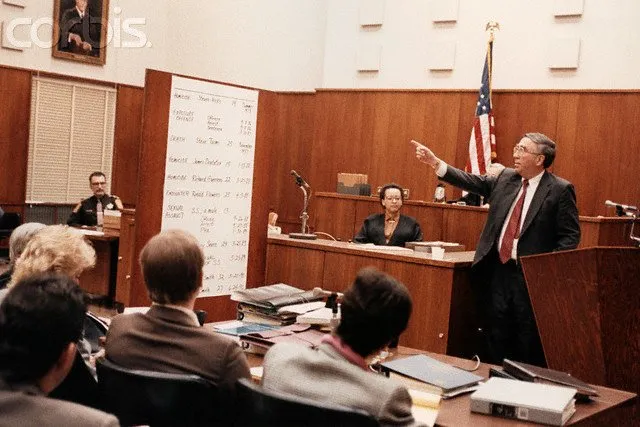
I just received some really good news. Moments ago, a Texas lawyer contacted me and advised the prosecutor in a certain Texas county is going to dismiss a felony Possession of Marijuana charge against our mutual client. This means my client will go free.
When the accused hired me as his expert witness, it seemed there was no hope. His lawyer stated he could not win an evidence suppression hearing because he could not find any holes in the government's case.
Most drug cases are won or lost during an evidence suppression hearing which usually takes place long before the trial date. Lawyers and their defendant's rarely take a drug case to trial because juries are predisposed to convicting persons for drug crimes. It is also very difficult to win a jury trial because the judge, prosecutor and the police always form a triad against the defendant. For these reasons, defense attorneys try to "beat" all drug cases during a suppression hearing.

A suppression hearing looks like this: The defendant and his lawyer are on one side of the courtroom. The prosecutor and the police are on the other side. The judge is sitting on his throne in front of the two parties. There is no jury and rarely an audience.
The defense lawyer starts the hearing by giving the judge reasons why the evidence should be "suppressed" or thrown out. The reasons are usually errors the cops made during the search and seizure of the evidence. For example, if a cop did not have probable cause to search a car and did not get permission to search the car, the judge should "suppress" the evidence. This means anything the cop found during the illegal search cannot be used against the defendant at his trial. Since the government no longer has evidence to use during the trial, the case is dismissed and the defendant goes home...free and clear.
If the judge does not agree with the defense lawyer the judge will deny the motion to suppress the evidence. When this happens, the defendant usually takes a plea bargain because the next step is the trial. As I explained above, it's too risky to take a drug case to trial. Taking a plea bargain is much safer than risking a "guilty" verdict which will usually lead to the defendant being given the maximum punishment.
As an expert witness, I am allowed to review my client's evidence. I use my experience as a former drug cop to find holes in the government's case. In this particular stack of evidence, I noticed the police officer had probable cause to search because his K9 alerted to my client's mini-van.
I reviewed the traffic stop video and although police dogs often false alert, this K9 alerted properly. After the alert, the cop searched the van and discovered the marijuana hidden in the roof liner of the van.

The K9 may have alerted properly but I noticed the police officer held my client for thirty-three minutes while waiting for the K9 to arrive. The Supreme Court recently ruled police cannot detain a motorist while waiting for a drug dog unless the officer has probable cause.
This cop did not have probable cause. There are only a few things that amount to probable cause which allows the police to search an automobile during a traffic stop: A K9 alert, the officer detects a narcotic with his senses or an informant's tip.
The arresting officer noted in his report the driver was nervous and his story seemed suspicious but these two "suspicions" are not probable cause. According to the new Supreme Court ruling, he should have allowed my client to go.
My client's lawyer spoke to the prosecutor after I pointed out the search and seizure error. Since the prosecutor knew she would lose during the upcoming suppression hearing, she decided to dismiss the case.

I am really happy for my client because he has a family and was facing a lengthy prison sentence. Some may wrongly judge my client for having that much pot. It's wrong to judge him because although possessing marijuana is illegal, there is nothing wrong or immoral about possessing the wonderful plant. Since we don't throw beer and wine dealers in jail, we shouldn't imprison weed dealers either.
When I was a cop, I received training that was intended to help cage people for non violent drug crimes. Now, it's very satisfying for me to use the same training to free people. Today is a good day for me and is especially a good day for my client.
Photo of cop with dog: That's me in the 1990's after making a large pot bust

Photo of marijuana in roof of van credit: cbp.gov
Photo of courtroom credit: murderpedia.org